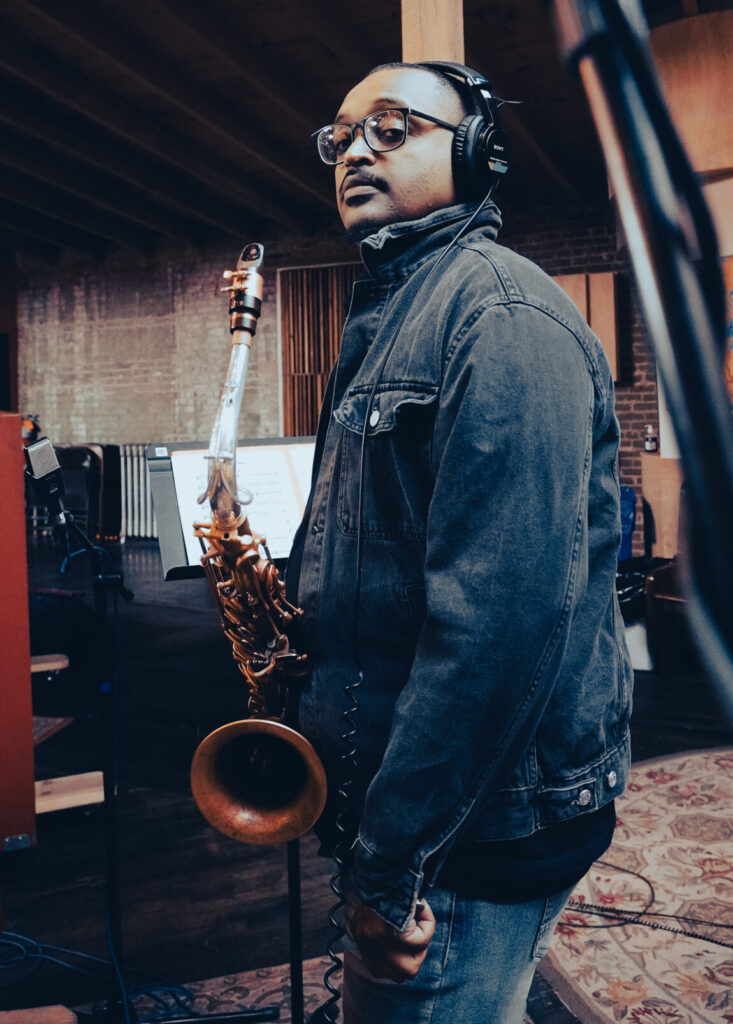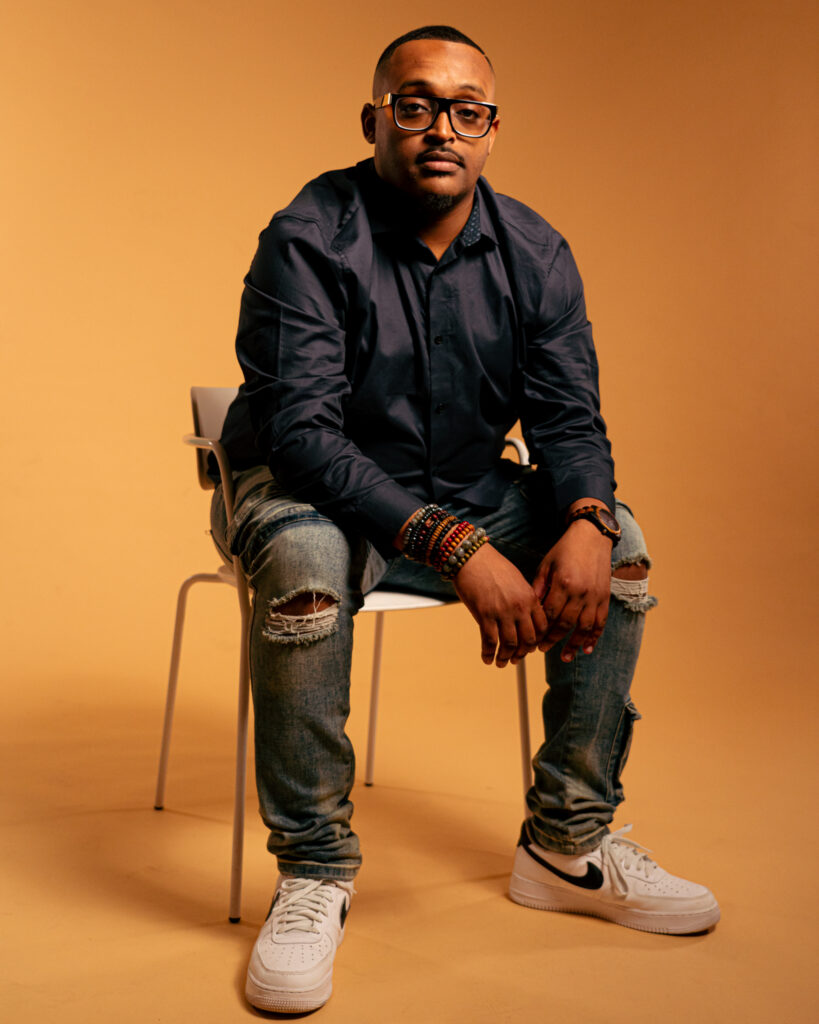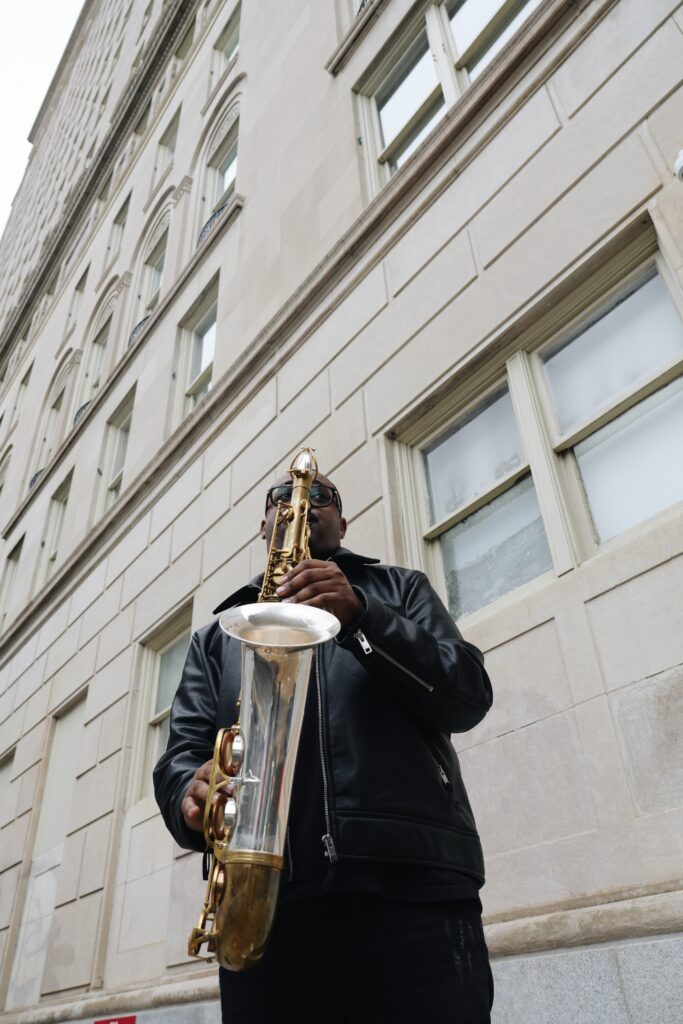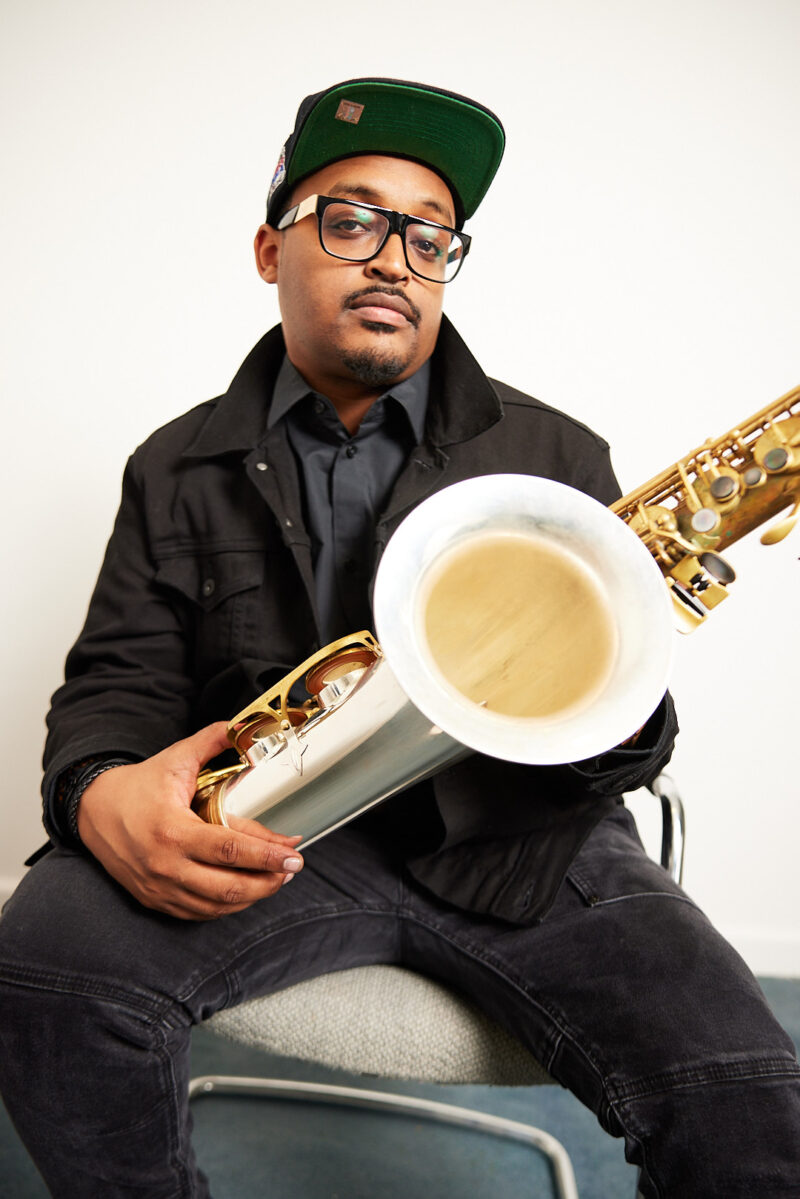Photo credit: Cody Cooper
If you’re just getting into Philadelphia’s live soul music scene, it’s only a short matter of time before you see saxophonist and Philadelphia native Hiruy Tirfe. To some he’s known as an outgoing, friendly fellow musician who is often seen supporting other musicians at their shows. To others, like award winning producer Dan “Dilemma” Thomas, he is a “first call” when it comes to gathering a horn section for a gig so you may have already seen him onstage playing with Patti LaBelle, Chill Moody or Bilal. Soon he’ll also be known as a solo recording artist when his debut album 10,000 Hours comes out on January 26th. Our editor Toya Haynes interviewed Hiruy Tirfe about the concept of his new album, jazz in Philadelphia, and the business side of music.
PSN: You have done a lot since you graduated from University Of The Arts in 2018 – from hosting your own weekly jam sessions at SOUTH and Silk City to playing with Patti LaBelle and contributing to Tye Tribbett’s latest album All Things New. Has it always been your plan to put out your own project?
Tirfe: I’ve always had a goal about one day putting my own record out. What made me put out my own project now was simply the fact that I felt like I had something to say musically and with this being a concept record, I really feel as though the message came off really clear.
PSN: Tell me why you chose the title 10,000 Hours. I’m assuming that the title comes from that famous Malcolm Gladwell quote about practice that says, “ten thousand hours is the magicnumber of greatness.”. Am I correct?
Tirfe: 100% correct.10,000 Hours is something that’s close and personal to me. It’s just something I lived by my whole childhood into my adulthood. The whole theory is that the true key to achieving true expertise in any skill is simply a matter of practicing, albeit in the correct way for at least 10,000 Hours which was presented in Gladwell’s book Outliers. So musically I wanted a record that spoke about what you do in those 10,000 Hours from the spark of a creative idea, practicing, execution of your skills, and even something like failing. So with the overall theme of this record, it’s just simply go after what your goals, aspirations and dreams are.

PSN: How long did it take to finish the album?
Tirfe: The whole process from writing the music, to performing it live first, (recording in the) studio then all the post productions took close to 2 years. I enjoyed every bit of the process.
PSN: You mentioned that 10,000 Hours is a concept album. How can the listener comprehend the theme through a mostly instrumental album?
Tirfe: The listener can comprehend the theme through the different ranges of dynamics and styles throughout the record. For instance, there’s one of the opening tracks called “A Cry For Help” where musically it’s extremely aggressive and all over the place and I do that to express the emotion of extreme confusion, being lost, desperation, etc. Then we have another song like “Chances” where it’s very mellow sounding but yet there’s no tempo/beat to it until the very last part of the tune during the piano solo. “Chances” conveys the emotion of grief, misery, and even depression until the last part of the song where it’s giving a “light at the end of the tunnel” type of feeling. Even with minimal vocals on the album, the listener can still be taken in on a journey both musically and emotionally.
PSN: You have some really talented guests joining you on this album including trombonist Aaron Goode and singer/songwriter MARE who is on your second single “No Saving”. What was it like collaborating with them?
Tirfe: It was an absolute joy to collaborate with Aaron Goode and MARE. Both are individuals that I have a great relationship with both outside of the instruments. There have been numerous times in the past where we’d hang at jam sessions or other musical jobs where we would hang and talk about the idea of doing something together in the studio. In addition, I’m just a fan of both Goode and MARE as solo artists as well. Goode has a tone on the trombone that’s so rich, full and vocal-like that no else can even think about coming close to sounding like and MARE’s soulful tone just brings you in everytime you hear her perform. I’m very happy about the result of all the records that the guests joined me on.
PSN: Who else did you collaborate with?
Tirfe: There’s a spoken word poet who’s on the track “Live Your Life And Take Control” from Philadelphia and her name is Ciara Chantelle. Ciara and I met at World Cafe Live when my guy RC Williams (former musical director for Erykah Badu) was doing these monthly jam sessions over there supported by Ropeadope Records. We both sat in and I was just completely blown away by her talent. Same story with Goode and Mare, we talked about the idea of doing a record together. So during COVID while I was in Florida recording on Tye Tribbett’s album “All Things New” I had my midi keyboard with me and, just like with MARE, started sending her a bunch of different ideas. We both landed on “Live Your Life And Take Control.” Afterwards she wrote to it, recorded her vocals at Boom Room Studios and decided to put MARE on it as well, then the rest is history.

PSN: There’s a sweet moment on this album where you interviewed your parents. You talk with them about how they met each other and migrated from Asmara, Eritrea in East Africa to here. What made you want to include that on your album?
Tirfe: Out of all the people that have put in the “10,000 Hours” work into their craft, both my mother and father are both living and breathing testimonies. Me being their first born, the older I got the more I understood the sacrifices that they both made to start a new life here in America and start a family. One of my first memories is my father going back to school to get a better job. It was impossible to do a whole concept record and not include my parents since they lived it. Just trying to give my parents their flowers.
PSN: Earlier I mentioned the jam sessions and open mics you have hosted. As a musician born and raised in Philadelphia, how important is it to you to build your own opportunities that impact the music scene here?
Tirfe: I believe it’s important to build your own opportunities that impact the local music scene but it really forces you to treat yourself like an entrepreneur/business owner and not just a musician. When you have these meetings/conversations with these club owners you really have to really think to yourself what makes your offer to provide musical services more appealing than the next person. That’s really knowing “the game.” All those things that business owners go through like branding, marketing, advertising, etc those same concepts apply to music as well even on a local level. In addition to all that, you create a thriving scene which then translates to a thriving city that music is the center of. A city like Philadelphia definitely deserves as many creatives that pour back to the city the same way Mike Boone, Byron Landham, Sid Simmons, Trudy Pitts, Doc Gibbs and many others did.
PSN: Any plans to bring back (jam session night) Studio Wednesdays?
Tirfe: Absolutely. Not even a question, Studio Wednesdays will return. The goal with the brand of Studio Wednesdays is to include the younger generation to at least experience this type of musical atmosphere. It was great to curate Studio Wednesdays for the past 2 years and I’d like to publicly thank Jesse Andreozzi and Tyler Sliney for giving me the chance back in 2021 to bring a monthly event back to Silk City. The Studio Wednesday House Band has still been performing as a unit even after the conclusion of the first run of Studio Wednesday including the UCity Holiday Festival. Also on June 6th, the Studio Wednesday House Band will serve as house band for the annual “Voices of Hope; A Celebration of Black Excellence” at The Mann Center where I serve as musical director.

PSN: What is so special about Jazz in Philadelphia?
Tirfe: Philadelphia has always had a history of producing the most serious creatives and musicians/vocalists that have made not just local but global impact. Even when I was growing up, I had just the killers around me. I would go to middle school and high school with musicians like Eric Whatley, Josh Thomas, Yesseh Furaha-Ali, Immanuel Wilkins then on the weekends go to the Kimmel Center Youth Jazz Ensemble and see Nazir Ebo and Austin Marlow.
PSN: Do you feel like it’s a kept secret or do you feel like Philadelphia is becoming more well known as a good place to hear jazz?
Tirfe: It’s definitely not a secret that Philadelphia is the place to experience a high level of music and musicianship, but I do feel as though the visibility of our music and musicians isn’t at a place where it used to be. I feel like with the small number of venues Philly has, and the amount of musicians from out-of-town that flood our clubs it gets harder and harder to see and witness our own. But that doesn’t mean the sound of this city disappeared. We’re still here and making it happen. Philadelphia has always been known as the place for all things music and I’m always proud to be born and raised in this region.
Hiruy Tirfe will be celebrating the release of his new album 10,000 Hours at his album release show on Saturday, February 3 at The Painted Bride Art Center with special guest Black Buttafly. For more info, visit www.hiruytirfe.org.

